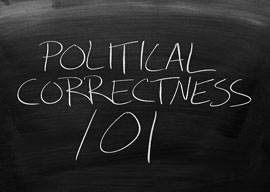
February 11, 2017

Source: Bigstock
But the other side of what I suppose I must call the Great Divide is hardly any better. By social class and education I live in a world in which it is simply assumed, a priori, that Mr. Trump is mentally at the level of one of those cats in physiological laboratories with electrodes implanted in its amygdala that, when stimulated, cause the cat to become enraged without there being anything to be enraged about. Therefore there is no need to argue against anything Mr. Trump says, because it contains no thought. His policies are not policies with a hinterland of thought or argument behind them, but the cries of ignorant rage of a very bad and unscrupulous man.
I was at a little meeting of academics the other day at the beginning of which everyone established his own virtue by decrying and even condemning him, in absentia I need hardly add. It was like attending a faith meeting. Somebody said that his policies did not deserve to be called any such thing, from which it followed that no arguments had to be produced against them. It was enough that they should be his.
I pointed out that, as only one example, his proposal to reduce tax on corporate profits to 15 percent from 35 percent was perfectly rational from an economic point of view, and was rational even if you disagreed with it. After all, 15 percent of a lot is more than 100 percent of nothing.
Many people nevertheless feel that, with the advent of Mr. Trump to the presidency, we have entered a new age of post-truthfulness and irrationality, but if this is such an age (and it is worth remembering that politics has never been entirely a disinterested inquiry after truth), Mr. Trump is a response to it rather than its originator. For what is political correctness other than an attempt to close down or preclude disinterested inquiry after truth on important selected subjects? When universities, of all places, lead in the efforts to stop young ears from hearing heresies against modern pieties, it is hardly surprising that a reaction should form; though we should ever keep in mind that even in a political theocracy such as many would like our societies to become, heresy is not necessarily truth.